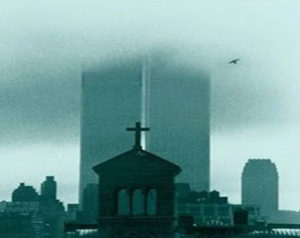You have no items in your cart. Want to get some nice things?
Go shopping Royal Festival Hall. The soft murmur of voices. People shuffling towards seats. We await the arrival of Don DeLillo. Some clutching hardback copies of his latest novel Zero K. Others proudly holding copies of Underworld, perhaps his most celebrated. Displayed prominently on the stools set-up in the bar area, and by the entrances.
Royal Festival Hall. The soft murmur of voices. People shuffling towards seats. We await the arrival of Don DeLillo. Some clutching hardback copies of his latest novel Zero K. Others proudly holding copies of Underworld, perhaps his most celebrated. Displayed prominently on the stools set-up in the bar area, and by the entrances.
My own relationship to DeLillo’s oeuvre could easily be described as haphazard. The first novel of his that I read was the poorly received Cosmopolis. Captivated by its disconnected dialogue and futurist atmosphere, it was unlike anything I had encountered before. Austere, and yet cinematic, thoughtful, but not ponderous, it somehow integrated seamlessly into my wider cultural taste. Reflecting, even complementing, interests in music, art, and film. I have always thought these things are somehow subconsciously cultivated. That maybe an element of fate is at play. Because how can we become so enamoured by a certain style, or voice. How can we feel and respond so intensely to one writer over another?
To read reviews of DeLillo releases post-Underworld is to find a mixed bag of apathetic bemusement, and half-hearted praise though. Quite often in fact DeLillo features seem to be marked by a yearning, almost pleading array of references to earlier, influential novels, like White Noise, Libra, and Mao II. While many go so far as to begrudge the stripped down, sparser approach, of what is commonly described as DeLillo’s ‘Late style’, or ‘period’.
‘Late styles’, at least by definition, are usually used in reference to a time toward the end of a writer’s career whereby the newer works seem to exist outside, even in contradiction to, those that came before it. In the case of DeLillo I’m not sure the tag should be so readily applied. Certainly his novels have become progressively minimal in style, and in their brevity. The themes though, of the nature and narrative of terrorism, of the effects of mass media and consumerism, of society’s desensitisation to violence, have remained throughout his career. The later novels have also retained that same feeling of misplacement DeLillo coils around his reader, while moving them through a sort of hyper, mystical, realism.
Another common critique of this so-called ‘Late period’ has been of DeLillo’s apparent abandonment of recognised plot structures and devices. With 2010’s Point Omega, and the earlier, much criticised, The Body Artist, often cited as examples. I’m not convinced this is necessarily a bad thing though, and it’s nothing new in regards to DeLillo’s previous work. Even as far back as 1975’s surreal rock and roll satire, Great Jones Street, there is a distinct playfulness with the accepted parameters of plot and narrative time. Indeed it could be argued that Great Jones Street is more modernist collage than fully realised novel. And to my mind it is far less approachable than the vastly underrated, Point Omega or The Body Artist.
What the example of DeLillo leads me to consider then, is whether it is the writer’s job to stick to, and for want of a better word, craft, the sort of novels that suits the needs of a modern reader. Or if instead the onus is on the reader to work with whatever vision is set out by the writer.
I have always been of the opinion that a level of collaboration must exist between writer and reader. Because to read a novel or short story is to buy into the conceit that a writer, that the world of literature, proposes. In what is increasingly regarded as a narrowing market then, I wonder if the sway within this relationship is beginning to work against the creative instincts, the freedom of expression, of the writer. Restricting newer ones especially to those very boundaries and parameters more established writers are finding so constrictive.
Not so long ago a colleague described my writing as anti-literature. I wasn’t sure how to take this at the time, and despite my best efforts it seemed to gnaw away at me. I’ve always known there is something about my writing that doesn’t quite fit in the more traditional landscape of fiction, but rather than persevere, rather than perfect something of my own, I stopped sharing my work altogether. For months I tried to change my style into one I thought publishers and agents might be looking for. Of course this only made matters worse.
Now the lights in the hall are turned low. An excitable silence descends. A woman takes to the stage. I feel my partners hand on mine. A smile is shared briefly between us. Then there’s a burst of loud applause that shatters the moment and a slow moving DeLillo makes his way to the small stand. He places some papers out in front of him. The word fragile springs to mind, but feels unfair, disrespectful. I wonder if this might be the literary equivalent of seeing your favourite singer struggling to hit the notes that once come naturally. This fear is laid to rest by DeLillo’s crisp New York tone. Introducing, then rhythmically working through, the opening passage to Zero K.
***
When the reading is over DeLillo participates in a Q&A session with the writer and critic who introduced him. She draws parallels between his latest novel and his 80s classic, White Noise. Specifically to each novels preoccupation with death, and the lengths humanity goes to in its attempts to defy it. DeLillo is both coy and engaging in his response. Witty and intelligent without seeming pretentious. He rejects the idea of any deliberate links between Zero K and the previous work he seems reluctant to name. He insists that each work presents itself to him of its own accord. That each work dictates its own length, and style, and must be followed through until the end.
What I find so inspiring about DeLillo is that even after all his success he still strives to take his writing into places other writers are less willing to go. For so long a cult writer he has not wavered, and has instead continued to follow his own path. Rejecting the easier route of churning out Underworld or White Noise the sequel, he remains a writer continually looking forward, not back. Knowing that his work once finished, once out there, is no longer his. To be owned by the reader.
Perhaps what is most refreshing though, particularly for a writer of his stature, is his reiterated belief that literature is still, and will continue to remain, relevant, and important, in a rapidly changing world. It’s something I admit that I am guilty of forgetting, and at times too willing to dispute. But here I am sat in the presence of this near eighty year old man. A former park attendant from the Bronx. He has travelled however many miles across the Atlantic. Come to an outdated brutalist building along the Thames. To talk about books, about art, and science.
To talk about life.

About Reece Choules
Reece Choules is a regular contributor to both Litro and The Culture Trip. He lives and works in South London.



